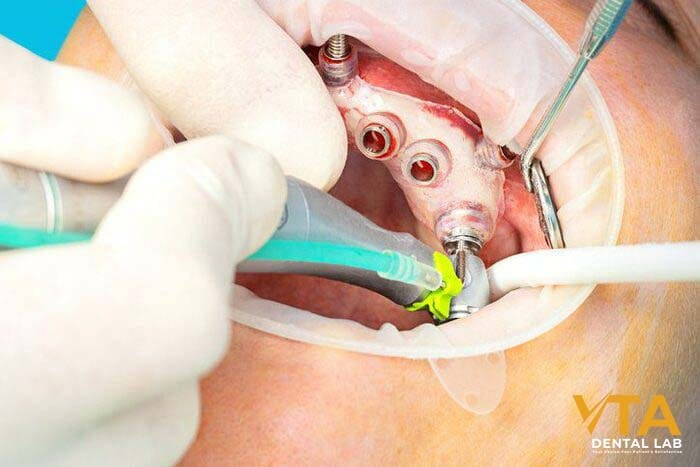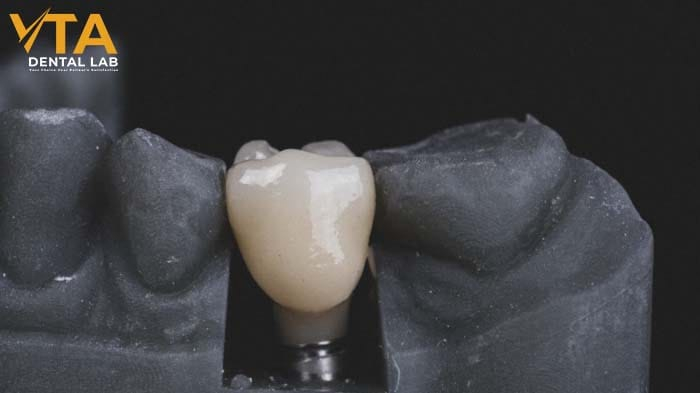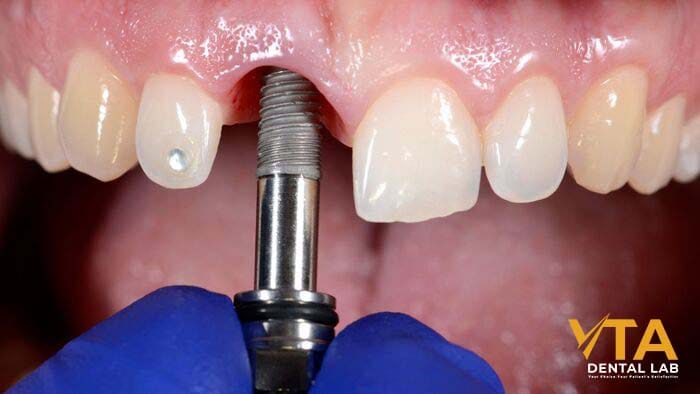Is a Dental Implant Painful? Understanding the Procedure
Dental implants are a common solution for replacing missing teeth, but many wonder, “Is a dental implant painful?”. While the procedure is performed under local anesthesia to minimize discomfort, some mild pain or soreness can occur during recovery. Understanding the process and pain management techniques can help ensure a smooth experience with minimal discomfort.
What is the procedure for dental implants?
The procedure for dental implants typically involves several steps, often spanning multiple appointments. Here’s a general overview of the process:
Initial Consultation
The dentist will conduct a thorough examination, including X-rays or 3D imaging, to evaluate the jawbone and surrounding tissues. Based on the evaluation, a personalized treatment plan will be created, detailing the type and number of implants needed.

The dentist is taking X-rays or 3D scans to determine bone quality and ensure a precise placement
Preparation
If there are damaged or decayed teeth, they may need to be extracted, and if the jawbone is insufficient to support an implant, a bone graft may be required to build up the bone. This may involve a healing period before proceeding.
Implant Placement
During the implant surgery, the dentist will place the titanium implant into the jawbone. This is usually done under local anesthesia or sedation.
After the implant is placed, there is a healing period (usually 3 to 6 months) during which the bone fuses with the implant in a process called osseointegration.

The dentist inserts a titanium (or zirconia) implant post into the jawbone
Abutment Placement
Once the implant is securely integrated, a minor surgery is performed to attach an abutment to the implant. This may also require another healing period of a few weeks.
Crown Placement
After healing, impressions of the mouth are taken to create a custom crown that will fit over the abutment. The crown is then attached to the abutment, completing the restoration.

Is a Dental Implant Painful?
Follow-Up Care
Regular check-ups are necessary to monitor the implant’s health and ensure proper function. The dentist will provide guidelines for maintaining oral hygiene and caring for the implants.
In conclusion, the entire process can take several months to complete, depending on individual circumstances and whether additional procedures, like bone grafting, are required. Success rates for dental implants are generally high, and with proper care, they can last for many years.
Is a dental implant painful during surgery?
The patient will not feel any pain during the procedure because the procedure is performed under local anesthesia or conscious sedation. Before the procedure, the dentist will discuss the types of anesthesia so that the patient can request the most appropriate type of anesthesia during the procedure.

Is a dental implant painful during surgery?
After the anesthesia wears off, the patient will often feel discomfort, pain, or tenderness in the treated area. This can usually be controlled with over-the-counter pain relievers or prescription medications from your dentist.
If excessive discomfort persists after 10 days, the patient must contact their dentist immediately. Persistent pain may be a sign that the implant site is infected. If this is the case, the dentist will need to act quickly to save the implant.
How long will the pain and discomfort last after dental implant surgery?
The patient will have temporary pain at the implant site if everything heals normally. The pain will last about 3 to 5 days after the procedure, the patient may only need to take pain medication for the first 1 or 2 days.
Another thing to consider is that the wound at the implant site may be swollen, bruised, and stiff for a longer period of time. However, these symptoms will disappear after 7 to 10 days after surgery.

The pain will last about 3 to 5 days after the procedure
Causes of throbbing pain after dental implant procedure
Throbbing pain after a dental implant procedure can indicate various issues, ranging from normal post-surgical healing to complications that may require attention.
Here are some common causes of throbbing pain following dental implants:
Open surgical wound
This is one of the common complications after implant surgery, this occurs when the gum tissue after surgery is exposed. In this case, the patient may feel pain or irritation, and the oral surgeon may give oral care instructions or take antibiotics to avoid infection.

Understanding these stages helps appreciate the precision involved in achieving a successful dental restoration
Infection
Infection occurs when bacteria enter the surgical gum tissue, which prevents the tissue from healing. The wound may reopen or not heal.
Improper implantation
When the patient experiences severe pain at the implant site, it may be a sign that the implant is not integrating properly with the bone. The implant may need to be removed and reattached later.
Other signs of dental implant complications
If you experience symptoms other than pain, it could be a sign of complications, specifically the following:
- Fever
- Vomiting, nausea
- Swelling in the implant area that gets worse
- Heavy bleeding a few hours after surgery
In conclusion, while some may worry about a dental implant being painful, the procedure is typically well-managed with anesthesia and sedation options. Post-surgery discomfort is usually mild and can be controlled with proper care. Understanding the process helps reduce concerns, ensuring that dental implants remain a highly effective and minimally painful solution for tooth replacement.